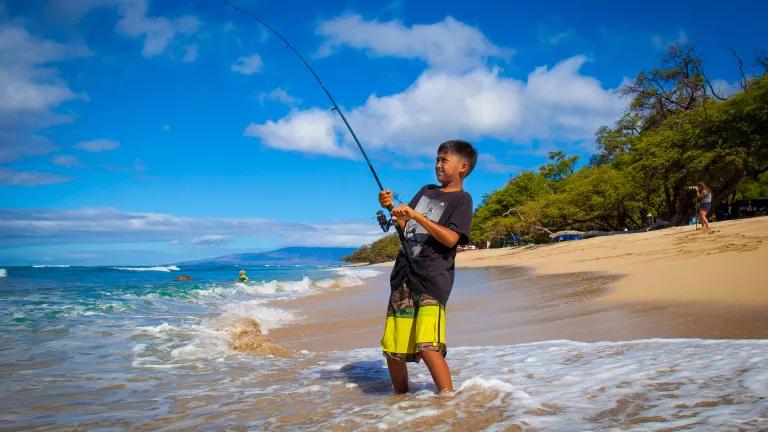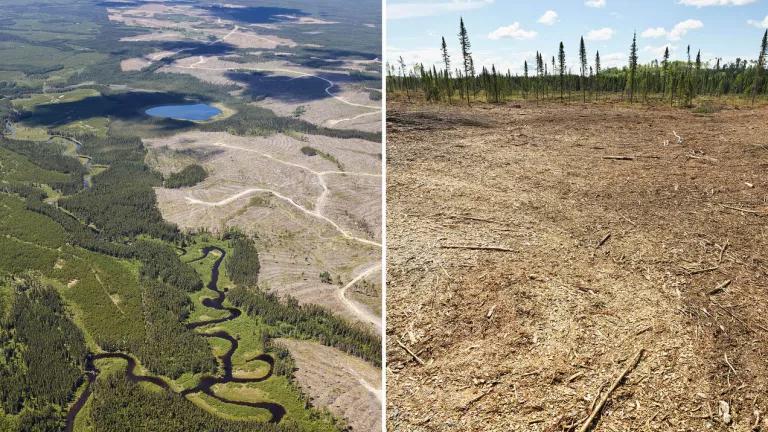NOAA Begins to Unpack Equity and Justice Issues in Fisheries
But much more work remains to meaningfully address inequities in U.S. fishery management.

NOAA’s National Marine Fisheries Service (NOAA Fisheries) recently released their draft Equity and Environmental Justice Strategy as an effort to prioritize more equitable delivery of the agency’s services across the U.S. This is a significant step to acknowledging and removing inequities and barriers to participating in our fishery management processes. However, there is still more that NOAA Fisheries must do to ensure meaningful recognition and involvement of all the communities the agency serves.
True progress toward equity and environmental justice will require rebalancing power in our fishery management system and NOAA Fisheries’ decision-making processes. Though the draft Strategy offers an important step in making that progress, NRDC, with Azul and our other community partners, submitted comments with constructive suggestions for a final version of the Strategy as to how both strong leadership and accountability from NOAA could help achieve these goals.
Fisheries policy process is nuanced, complicated—particularly for those just being welcomed into these conversations—and has a culture currently dominated by the interests of the fishing industry. This creates significant barriers to meaningful engagement of underserved communities. Especially as the rapid pace of climate change and its resulting impacts further burden those who are marginalized, NOAA Fisheries must act on stated goals within the Strategy to build relationships within communities and facilitate the involvement of those potentially affected by decision-making. We identified several key actions within the draft Strategy that are critical to realizing that goal, including:
- Creating infrastructure for outreach and building relationships by hiring staff liaisons at regional field offices;
- Including local and traditional ecological knowledge (TEK) in fisheries, climate, and ecosystem-based science; and
- Establishing a training program to provide constituents the information and tools needed to confidently and productively engage in fishery management decision processes.
When Federal agencies create a strategic document such as this, or at other moments of decision-making, the public always has an opportunity to inform the path forward. Though NOAA Fisheries offered a draft for public input, it did not follow the usual process by making responses publicly available, as well. Public comment should not just be an opportunity to provide recommendations to those in public service, but also facilitate the sharing of perspectives and insights among community groups, as well as hold our agencies accountable to incorporating public perspectives in its policies and programs.
The fishery management councils’ discussions on the topic over the last several months provided some context to the nature of how this Strategy may be received across these advisory bodies. Unfortunately, the discussions minimized the need for this effort to safely and meaningfully involve diverse voices and perspectives, and emphasized the use of existing systems to achieve equity. In this era of social reckoning, the collective lesson we must all come to terms with is the critical need for systemic change. Particularly for natural resource issues like fisheries, equity and environmental justice are essential to building the solutions needed to secure a livable planet that can sustain us all into the future.
Those discussions also underscore another important point in NRDC and our partners’ comments on the draft Strategy—the need to enhance diversity within the regional fishery management councils. For more equitable access to decision-making and to better support vibrant and healthy oceans for all communities, council composition must include a broader range of voices, particularly subsistence fishers, Tribal communities, conservation advocates and non-consumptive users. The final Strategy should include an action committing the Secretary of Commerce to such Council appointments.
NOAA Fisheries must maintain the course set by this draft Strategy and go further to strengthen efforts to meaningfully involve the underserved communities impacted by their mission work. Building a more equitable and just fishery management system will require strong leadership and strict accountability. NOAA Fisheries’ final Equity and Environmental Justice Strategy should double down on commitments to create safe spaces, educate and empower diverse voices to participate in fisheries and fishery management processes, and include specific metrics so the agency and councils are held accountable to progress.



